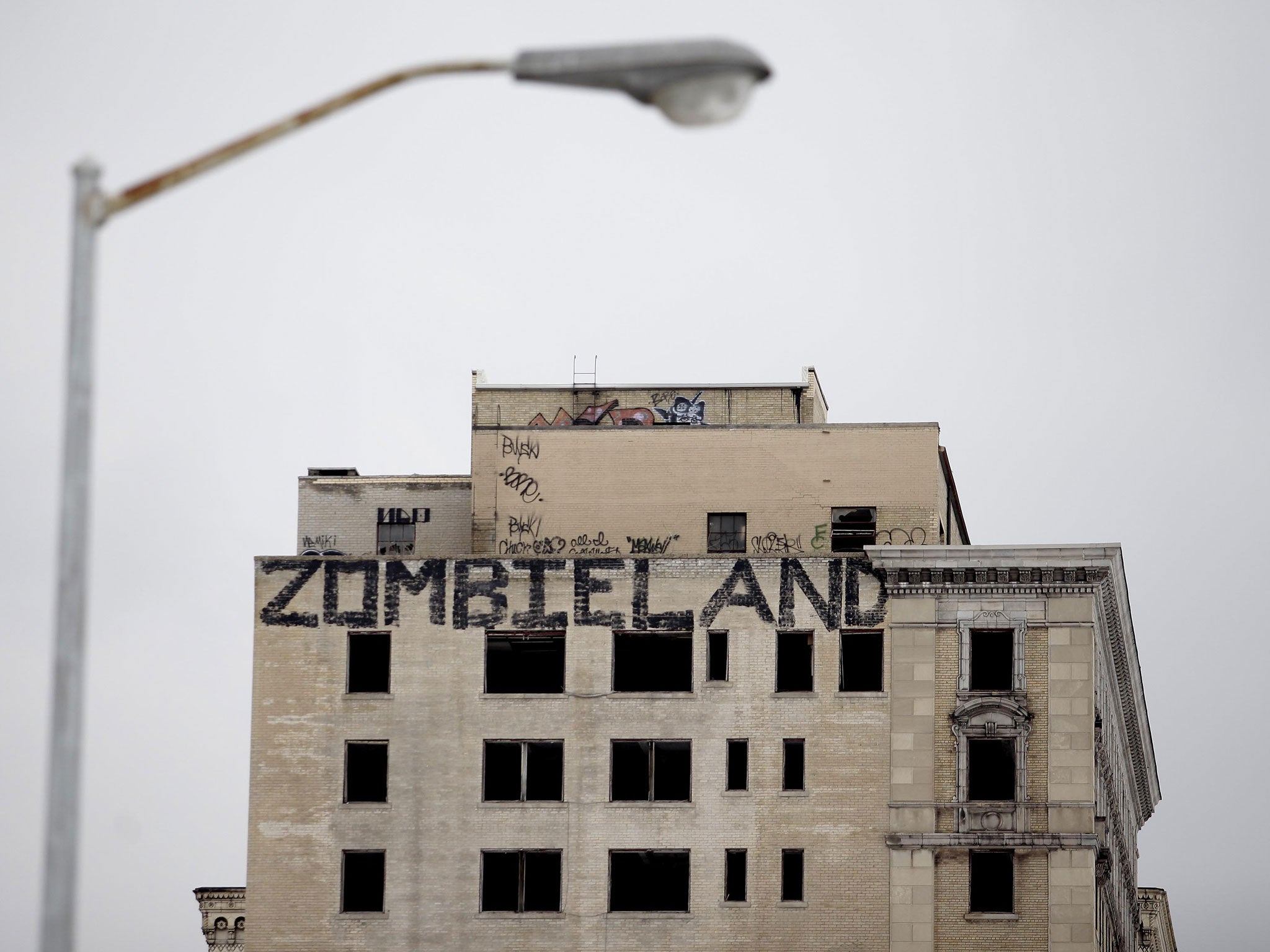Stephen Bayley: Is the Motor City's downturn about to turn around?
Something to Declare

Your support helps us to tell the story
From reproductive rights to climate change to Big Tech, The Independent is on the ground when the story is developing. Whether it's investigating the financials of Elon Musk's pro-Trump PAC or producing our latest documentary, 'The A Word', which shines a light on the American women fighting for reproductive rights, we know how important it is to parse out the facts from the messaging.
At such a critical moment in US history, we need reporters on the ground. Your donation allows us to keep sending journalists to speak to both sides of the story.
The Independent is trusted by Americans across the entire political spectrum. And unlike many other quality news outlets, we choose not to lock Americans out of our reporting and analysis with paywalls. We believe quality journalism should be available to everyone, paid for by those who can afford it.
Your support makes all the difference.In 2007, BA suspended London-Detroit flights, citing low demand. Metaphors of nails and coffins came immediately to mind.
"Can't forget the motor city," Martha and the Vandellas sang in the preposterously sexy "Dancing in the Street" – like the Ford Mustang, one of the big hits of 1964. The driving rhythm of the music captured the exuberant optimism of a culture at its fabulous, innocent and tragically temporary pinnacle.
But people have rather forgotten Detroit. Tumbleweed, at least of the metaphorical kind, blows down Grand Boulevard where Albert Kahn's mighty General Motors Building once advertised the pomp of history's greatest industrial empire.
In the first decade of this century, Detroit's population fell by 25 per cent. It is now descending past a mere 700,000. If present trends continue, Motown will become an unpopulated desert.
Like all ruins, Detroit is powerfully romantic. It was once the capital of New France, the territory marked out for French traders by the resonantly named and sonorously titled Antoine de la Mothe Cadillac. Anxious to repel English rivals and subdue the petulant local Iroquois, Monsieur Cadillac commanded a fort at Michilimackinac, but abandoned it after missionaries complained that the Iroquois were indeed subdued ... by cognac. So in 1701, Cadillac built another fort at Pontchartrain du Détroit, between the lakes of St Clair and Erie. "Detroit" simply means "strait". This fort became a great city. In 1863, Henry Ford was born nearby. At heart a sentimental Irishman, Ford died at his house, "Fair Lane". The name refers to the back alley in Cork where Henry's father spent his last night before escaping the famine of 1847. It was in the Fairlane Inn that Henry's successors planned the Mustang over steak and beer.
Elsewhere in Detroit, Albert Kahn's River Rouge factory is industrial architecture at its most sublime. To taste the future that has now passed, no experience could be more deliciously piquant than catching sight of Eero Saarinen's GM Tech Center in Warren. And nor should you miss the Pontiac Silverdome, a vast sports arena whose Teflon-coated roof is supported by internal air pressure.
My last visit was about five years ago. I borrowed a huge F-150 pick-up truck and gas-guzzled around desolate streets and an empty downtown, as much embarrassed as afraid. I escaped to the Nordstrom's in the mall in Troy to reacquaint myself with the more successful aspects of consumerism. There, in the car park, I decided to write something called "Cities of the Dead", a reflection on how very little history and culture can do to prevent shame and decay.
I am glad I never did, because the desertification of Detroit may have reached the bottom of its curve. Things became so bad that rents fell to nothing, property prices imploded and the result was that small manufacturers and creative businesses moved back in. "Calling out around the world/Are you ready for a brand new beat?" It's too early to be certain, but ruined, shuttered Detroit may soon become an exemplar for future post-industrial cities everywhere. "Every guy, grab a girl." Yes. Maybe again soon.
Join our commenting forum
Join thought-provoking conversations, follow other Independent readers and see their replies
Comments